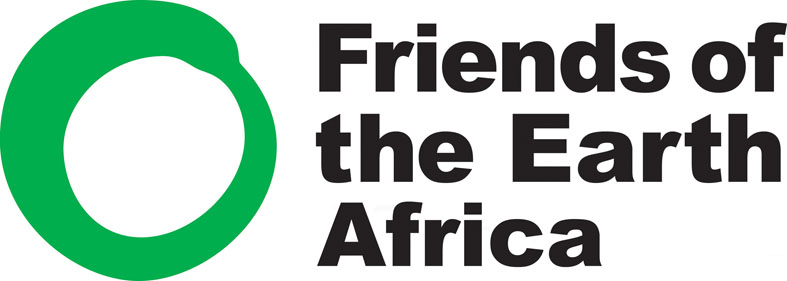FoE Togo CJE Work
FoE Togo: No to Oil Exploitation in Togo
As part of the regional project Frontline Resistance to Oil and Gas and Coordinated Campaigning for Climate Justice and Just Energy Transformation for Africa, two researches, Documentation of potential human rights that may be violated if oil is exploited and peoples’ rights violated by the effects of climate change and Documentation of renewable energy potential in Togo, have been launched to gather more evidence in order to strengthen the lobby and advocacy work with regards to Climate justice and Energy.
In addition to that, Friends of the Earth Togo has mobilized communities affected by oil exploration in Togo – Doévi kopé, Gbétsogbé, Katanga – to plan actions of resistance, lobbying and advocacy in order to dissuade the Togolese authorities from postponing possible oil extraction. It should be noted that the populations of these three communities are fishermen and women fish processors.

During this mobilization meeting, the fishermen as well as the fish processors, have largely reported on the difficulties and challenges related to the practice of their activities. Here are some of their testimonies testimonies :
“Every time we go fishing, the barbed wire at the boats hooks our nets. But these barbed wires are a lot at the boats and we don’t know what to do. They are very sharp and can hurt when touched. Friends of the Earth Togo gives us training and we are their eyes, when we see something, we have to inform them. It is sure that when they see this, they will help us. What is left in the sea is much more than this. We are asking them to help us so that this practice stops.”
Doevi Kopé village Development Committee president.
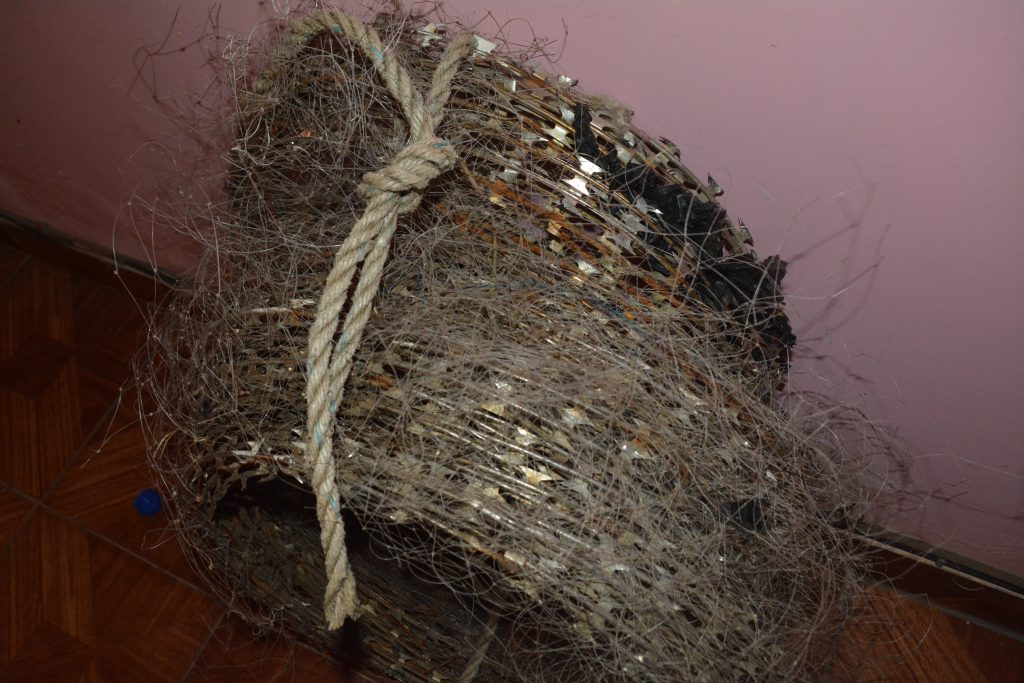

Barbed wire at the boats which hooks and damages fishermen’s nets
“When the boats dock, there are fish where their lights are projected and the fishermen throw their nets there. But when you do it and they arrest you, you go to jail with a fine. But fishermen are poor people, they look for what they are going to eat. They tell you to pay 300,000, 500,000 CFA francs. Now that you have come today, I would like to add this for you to consider. “
– Woman fish processor in Gbétsogbé.
“The authorities must find a safe place for us fishermen who work on the coast and send the fish to the market which are bought for consumption. The sea is destroying our homes without anyone saying anything and worse some officials are also taking the little space we have left, to give to companies. Consequently, we lack space and we wonder if Togo has fishermen. If this is the case, the coast should be left to us or protected so that we can go to sea. In truth, it is where we find fish that the boats are docked. We do not go far, it is there that we fish, on the mud where the fish are. When our comrades go there, they are chased away. The barbed wire that we found in the water, they have put them there deliberately to tear our nets and discourage us from returning. We implore you to help us to have a place from which we will go to sea to bring fish to the market, a place to cast our nets to catch fish for the market. I am asking you to send all this to the authorities.”
fisherman from Katanga.
“Are factories set up in communities ? The factories are installed far from the communities. But here they install factories where we are, in the populations. What do you want us to become ?” Chief of Doévi Kopé.
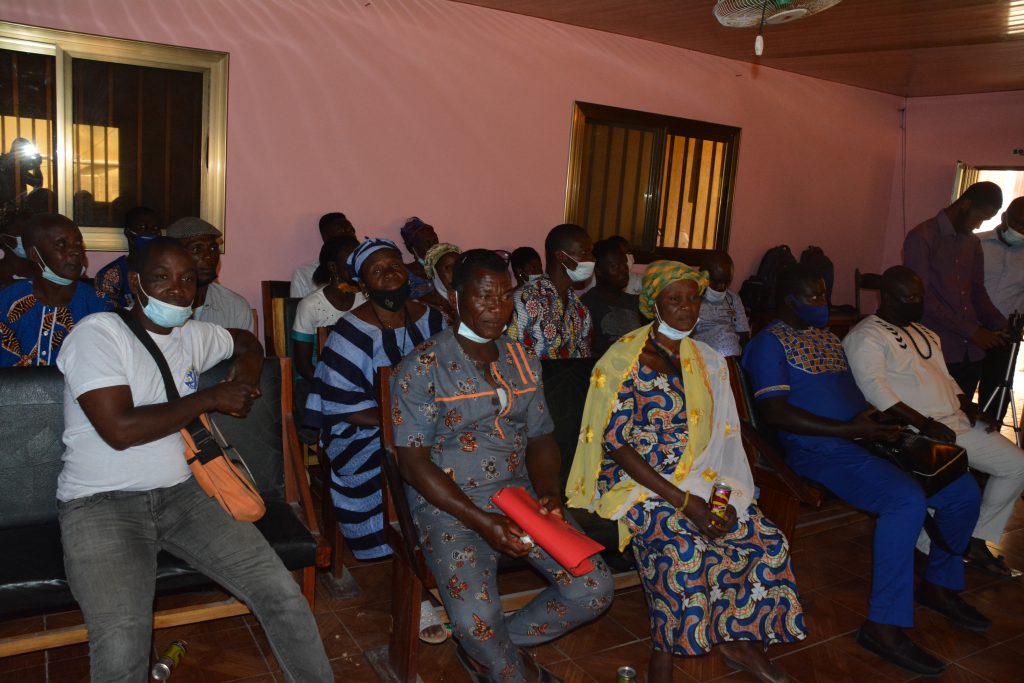
As a prelude to the discussions and testimonies of the community members, a video of previous activities of Friends of the Earth Togo with these communities was shown to generate debate.
At the end of the meeting, a schedule was established with each community for a visit by Friends of the Earth Togo to review and discuss their problems and realities with a view to finding together ways or approaches of solution.
Meeting with Gbetsogbe Community- 07August 2021

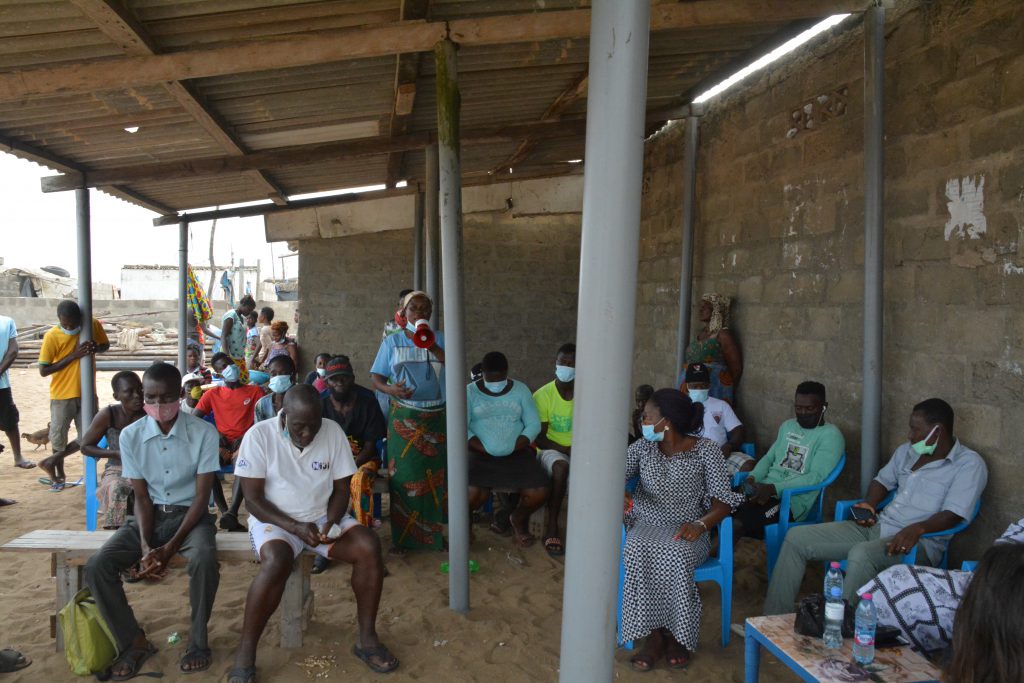

Meeting with Katanga Community- 19 Ausgust 2021
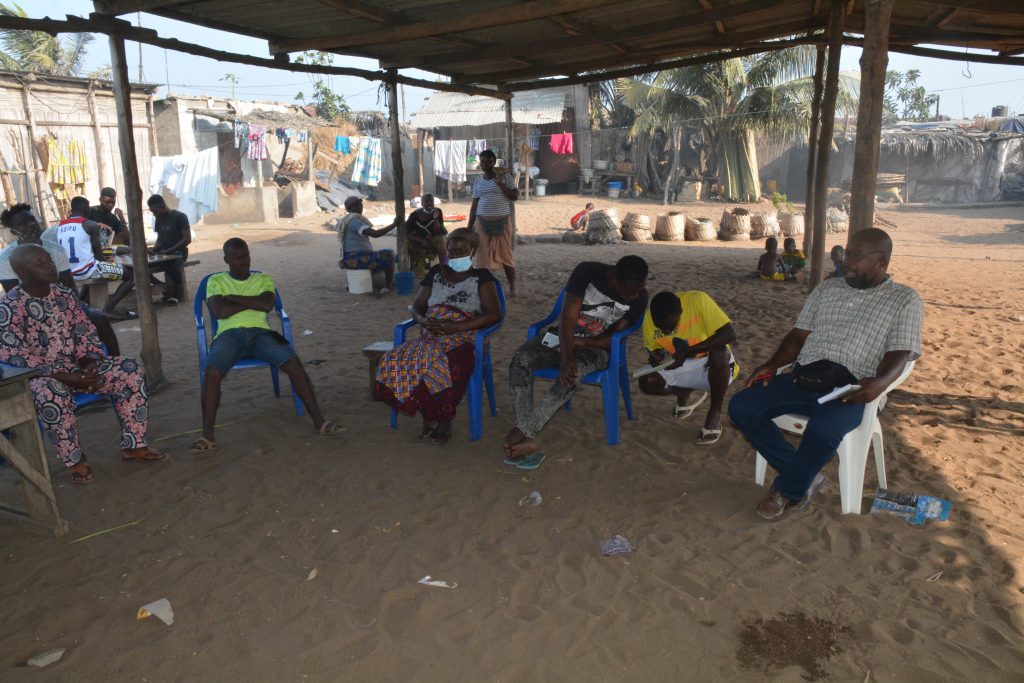

Meeting with Doevi Kopé Community- 20 August 2021
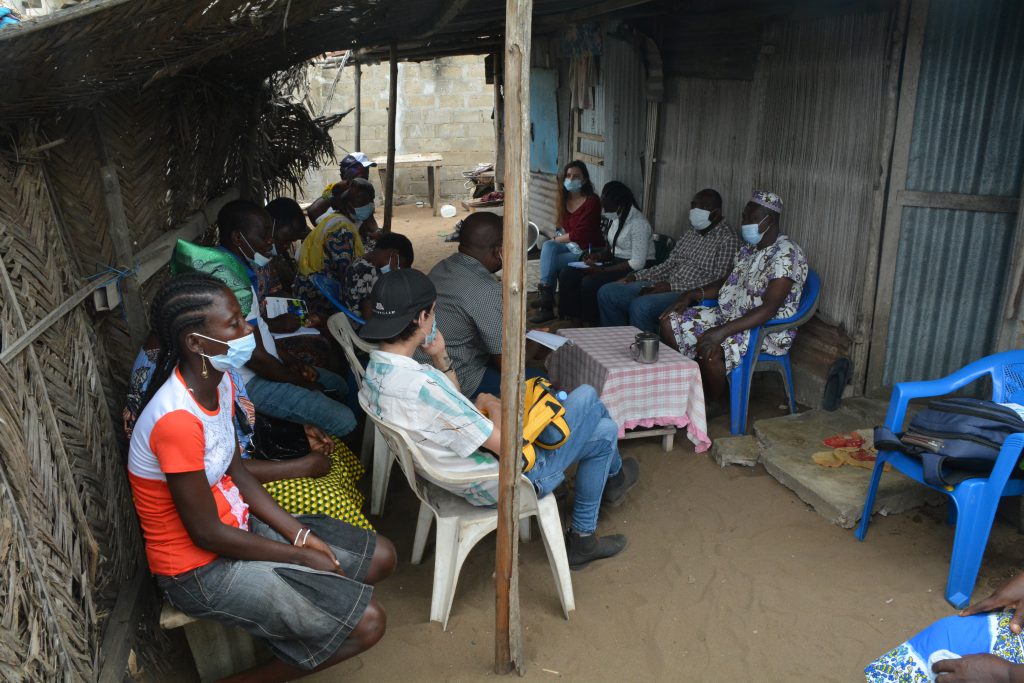
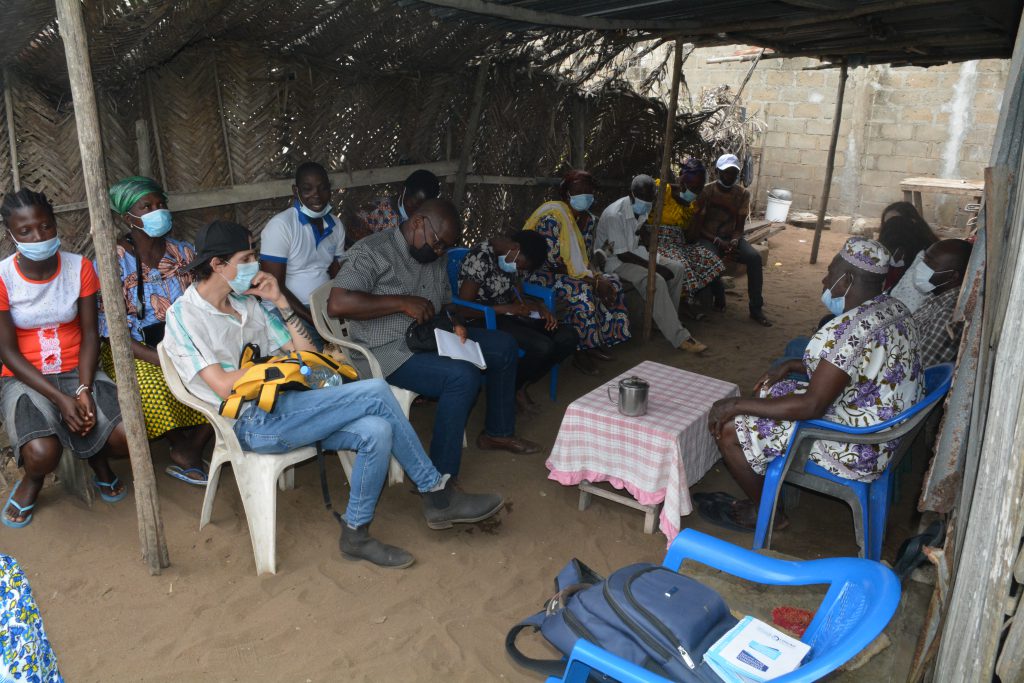
-
The campaign No to Oil Exploitation in Togo aims to fight new dirty energy projects and defend fisherfolk’s community rights through advocacy, lobbying, and public outreach and training. In particular the focus is on offshore oil projects with key company being Italian ENI
-
FoE Togo began with a meeting of community leaders that included fisherfolk and fish processing women in April 2021. The purpose was to create an awareness of what a blue economy is and to highlight the impacts that offshore oil will have on their livelihoods.
-
At the beginning of May, the research for two reports began. The first report is on the link between oil exploration and human rights violations. The second report is exploring the potential for RE in Togo. The reports will be used to build the teams capacity as well as for advocacy in their engagements with government and other CSOs.
-
The FoE Togo team organised a workshop on the Blue Economy and the Abidjan Convention (Convention for Cooperation in the Protection, Management and Development of the Marine and Coastal Environment which provides an overarching legal framework for all marine-related programmes in West, Central and Southern Africa).
-
One of the important focus areas is on the impacts of oil exploration and exploitation on women and the impacts of the livelihoods affecting women.
In the framework of the campaign No to Oil Exploitation in Togo, on 28 May 2021, Friends of the Earth Togo led a workshop that brought together civil society organisations (CSOs) and government actors, specifically from the Ministry of Agriculture, the Ministry of Maritime Economy, the Prefecture of the Gulf and the City Council of Gulf 4.
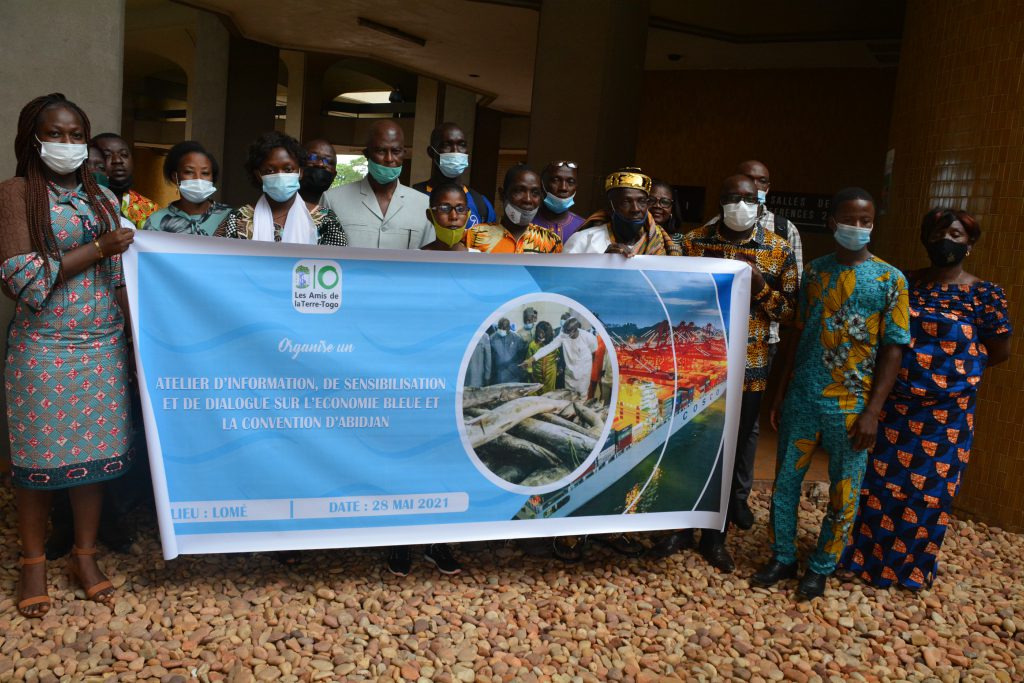
Workshop Group Photo
The aim of the workshop was for CSOs and members of coastal communities to learn more about the Abidjan Convention and the blue economy, specifically linked to the Togolese context.
Specifically, the workshop sought to :
- Empower participants on the concept of blue economy and the content of the Abidjan Convention;
- Highlight the link between the maritime economy and the Abidjan Convention;
- Show the link between the Abidjan Convention and climate change.
The blue economy is a concept related to the economic activities carried out in oceans, sea, rivers and coasts. During the workshop we reflected on the implementation of this concept in Togo and specifically looked at the activities of the Togolese government in the development of the blue economy. In addition to the extraction of oil from the sea, there are other activities such as fishing, which are concerned. We would need to understand the limit of Togo in these activities.
The Abidjan Convention protects marine ecosystems. We therefore also looked at how Togo implements the Convention. The participants not only reflected on the link between the blue economy and the Abidjan Convention but also on the consequences of the blue economy on fishing activities and fishing communities, and its climate impacts.

The idea is that, from the discussions, we develop strategies to accompany the communities, defend their rights and protect them against the harmful aspects of the blue economy based on the Abidjan Convention.In fact, the Convention should be used to contribute to the fight against climate change since it participates in the protection of the sea and oceans.
Kwami Kpondzo, Campaigns officer at Friends of the Earth Togo and Project Coordinator says : ‘’While in Togo, there is a probability of oil exploitation since oil has been discovered there, the idea is to ensure the application of the Abidjan Convention to stop the Togolese Government from extracting oil, based on the concept of the blue economy. The aim is not to produce more greenhouse gas emissions, responsible for climate change’’.
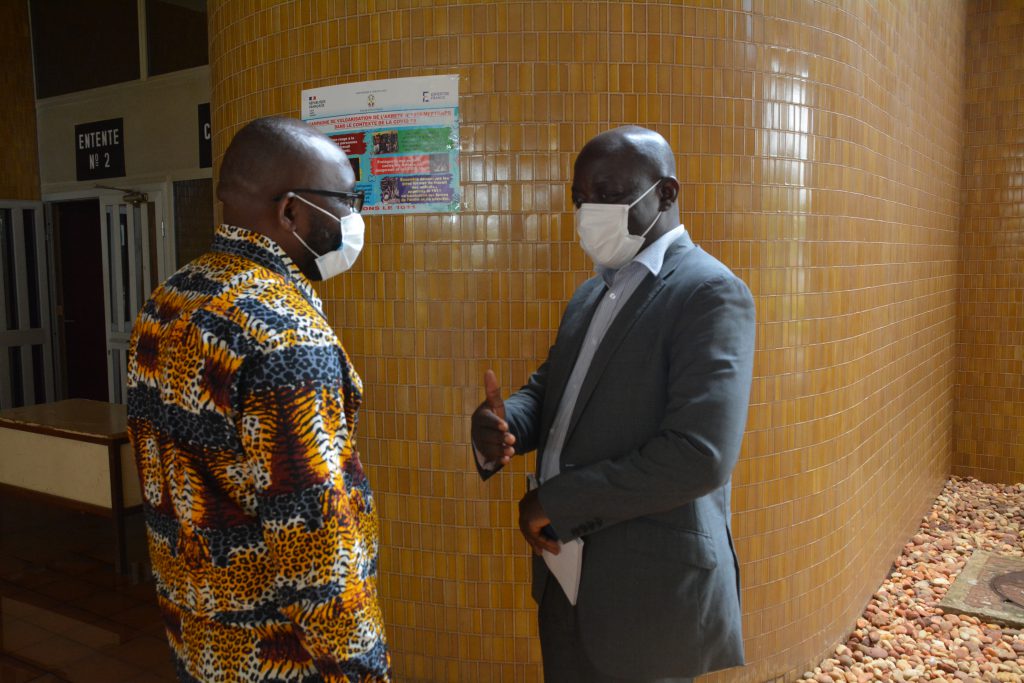
Kwami KPONDZO , Project Coordinator, lobbying the Préfecture du Golf through the Representative of the Gulf Prefect
Two communications were made during the workshop :
- Communication 1: The blue economy and its links with the Abidjan Convention
- Communication 2: Link between the Abidjan Convention and climate change
After questions from the participants followed by explanations, two working groups were formed to address the following topics:
Group 1
What actions can CSOs take to appropriate and disseminate the texts related to the blue economy in the context of climate change?
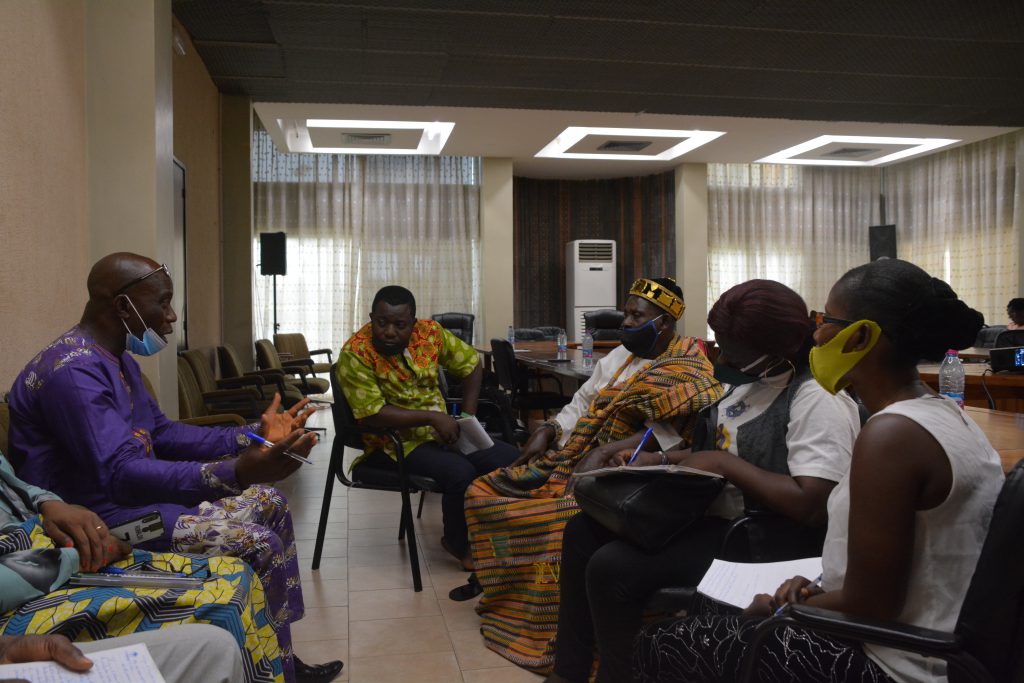
Working Group 1
Group 2
How can the State and CSOs accompany fishing communities in the framework of the blue economy?
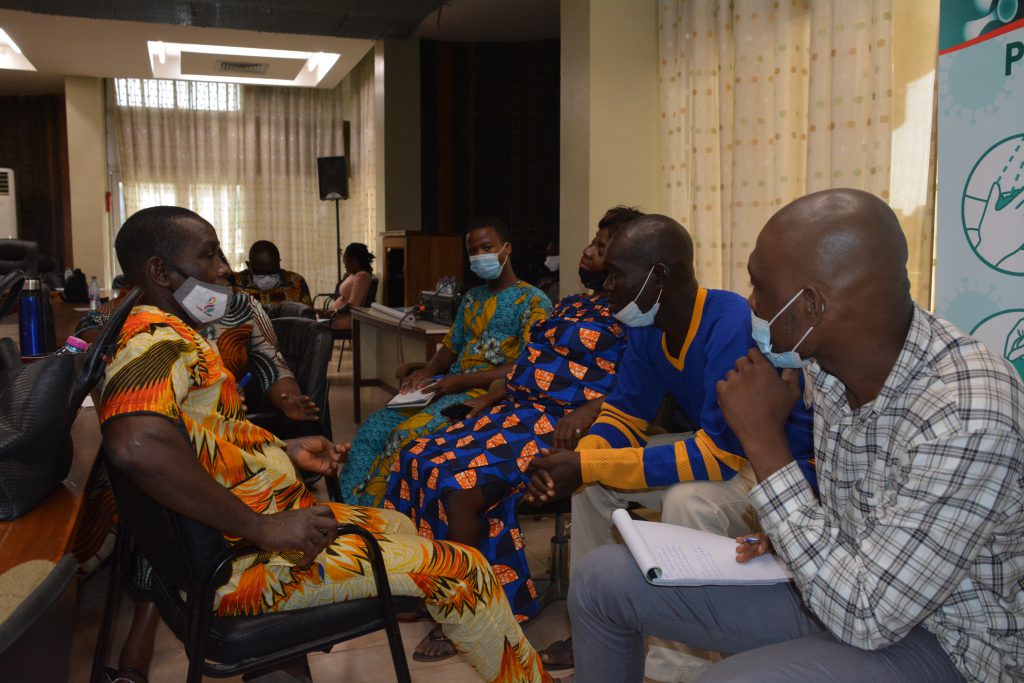 Working Group 2
Working Group 2
After some reflection, each group presented the results of its work, along with recommendations to the actors concerned by the workshop’s themes.
To the State:
1. Clearing of sand to the coast and installing dikes
2. Relocate the inhabitants of Baguida ask to the land in order to carry out IGA
3. Give to women fish processors more space and loans (to buy equipment) for their activities
To CSO:
1. FoE Togo to accompany them in their advocacy towards the State
2. Institute the biological rest period in Togo at the level of the fishermen inhabitants
3. Accompany the fishermen in alternative activities in relation to fishing
3. Continue the implementation of the WACA project along the coast
4. Adopt good practices in recommendations, capitalize on what is done elsewhere in order to finalize them
5. Increase the number of loans granted while sensitizing the population on good management
Interview of Kwami KPONDZO, Project Coordinator
Prior to this workshop, Friends of the Earth Togo, as part of the implementation of the project Frontline Resistance to Oil and Gas and Coordinated Campaigning for Climate Justice and Just Energy Transformation for Africa, from May 18 to 20, 2021, participated in the Francophone workshop for climate justice, held in Abidjan in Côte d’Ivoire.
A workshop that had as objectives :
- To share information, analysis and build collective knowledge on the crises and climate justice struggles in Africa
- To build unity and deepen solidarity amongst the progressive flank of the climate justice movement in Francophone Africa
- To develop common strategy and work to advance the progressive struggle on climate justice in Francophone Africa
Friends of the Earth Togo has also launched a study to ” document the potential people’s rights to be violated if oil is exploited and people’s rights violated by the effect of climate change’’. A first report on this study is expected in July.

Member groups
Cameroon Nigeria
Ghana Tanzania
Tunisia
Liberia Togo
Mali Uganda
Mauritius Sierra Leone
Mozambique South Africa
